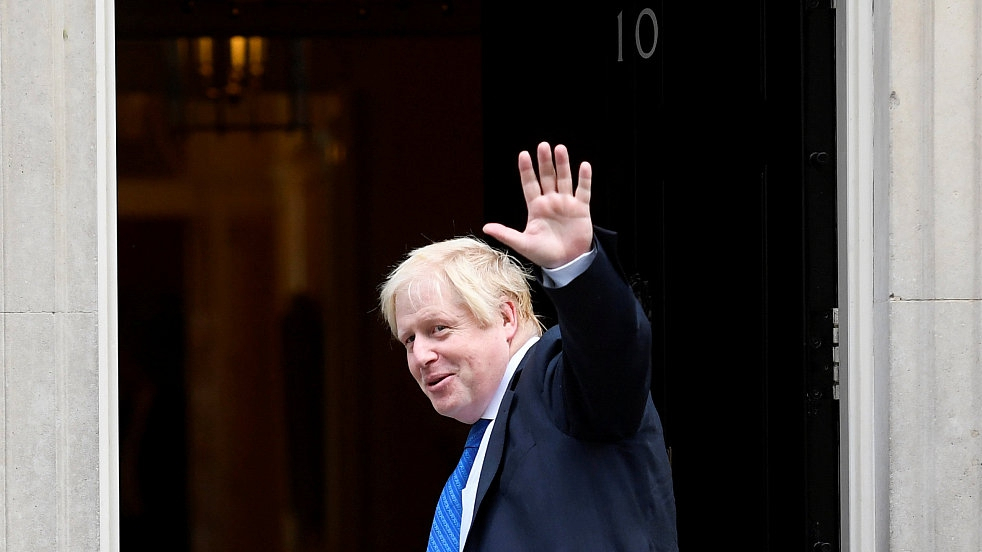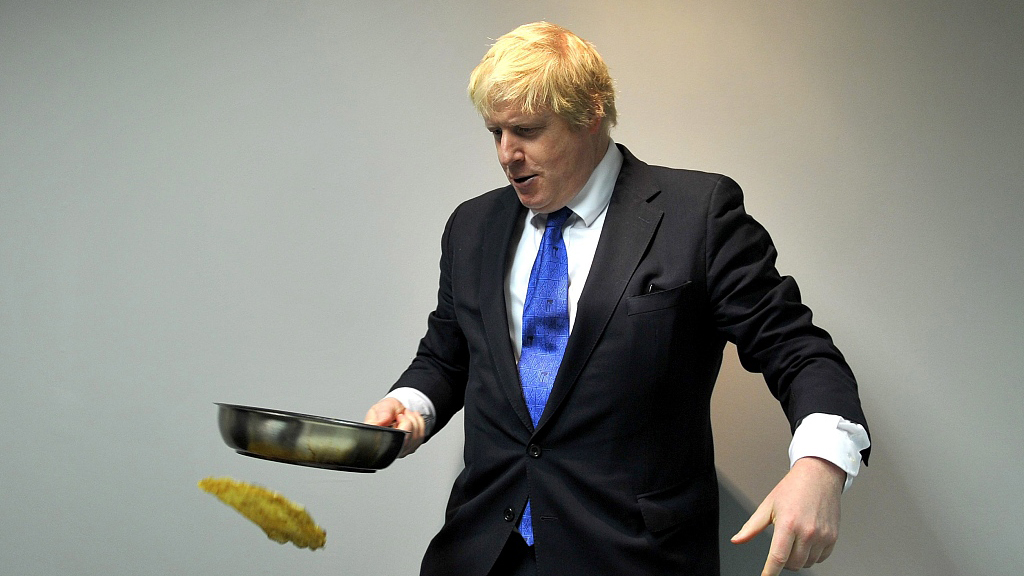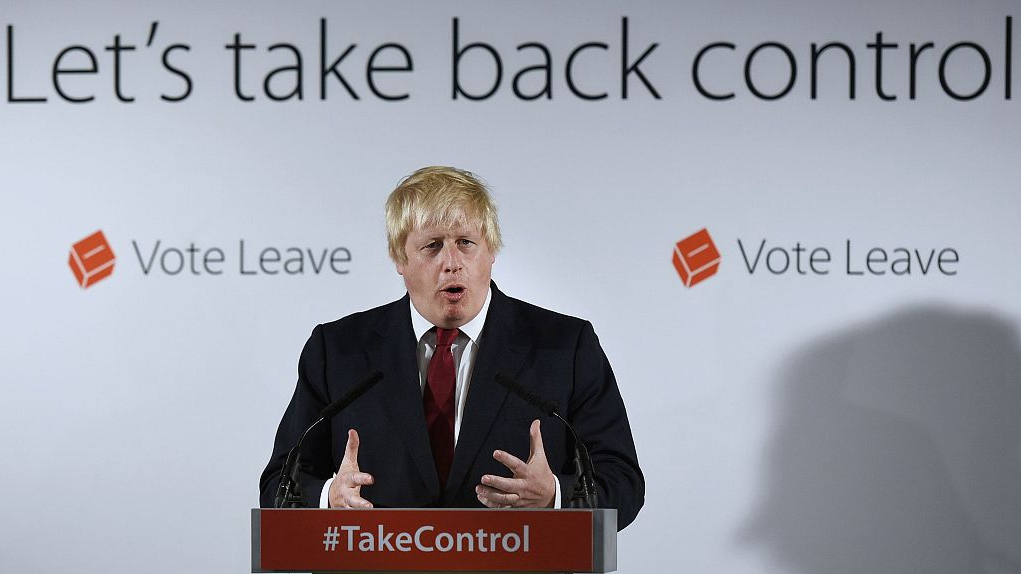

Boris Johnson has won the Conservative Party leadership race and is expected to enter Downing Street as Britain's new prime minister on Wednesday, inheriting a nightmare in-tray, from Brexit to tensions with Iran, that Theresa May was unable to clear.
Johnson, the former foreign secretary and London mayor, has long harbored ambitions to lead his party and take the top job in British politics and finally – after a failed attempt in 2016 – the stalemate and division of Brexit have opened the door to No 10 Downing Street.
Read more:
Johnson wins Conservative leadership contest
Opening moves of a 100-day plan for new PM
The 55-year-old can't yet be certain that he will become prime minister, however. A slim possibility remains that his attempt to take over a minority government mid-parliament will be blocked over doubts he can command a majority in the House of Commons, but the likelihood is he will address the nation outside No 10 late on Wednesday afternoon as the new head of government.

The reality of the weak position Johnson finds himself elevated to, and the crisis enveloping Britain, are likely to hit hard and fast.
The new party leader is reported to have been shocked last week to discover the bleak parliamentary arithmetic – numbers that are likely to quickly worsen – which will place any attempt to pass legislation in the House of Commons on a knife-edge.
The Conservatives, in a loose pact with the Northern Irish Democratic Unionists, have a governing majority of just three after one of the party's MPs, Charlie Elphicke, was suspended on Monday after being charged with sexual assault.
There is also a by-election on August 1 which could result in that majority dropping to one, while speculation over defections by pro-remain Conservatives to the Liberal Democrats, the third party which itself elected a new leader, Jo Swinson, on Monday, continues.
And a group of pro-Remain Conservatives, including several resigning members of Theresa May's cabinet, is unlikely to be blindly loyal to Johnson, who remains a divisive figure among his colleagues.

Boris Johnson speaks during a "Vote Leave" press conference in the wake of the Brexit referendum, in central London, June 24, 2016. /VCG Photo
The new leader's party is in a rut – recent polls consistently put the Conservatives on around 25 percent, in an increasingly fragmented electorate – and the problem will verge on the existential if Johnson can't navigate a way out of the European Union.
With around 100 days to the next Brexit deadline, October 31, attention will focus on whether Johnson, who led the "Vote Leave" campaign, has a coherent plan to take Britain out of the bloc by that date. He has promised to do so "do or die," but it is unclear what his approach will be.
The first clues are likely to come in the make-up of his cabinet: Will it be filled with hard Brexiteers or will he include moderates in a unifying top team?
Either way, there's little confidence three months is sufficient to find a new Brexit agreement or that a no-deal exit will be permitted by parliament. That means there's a strong possibility an election will be necessary to break the deadlock, via a snap call from Johnson or a no-confidence vote from opponents.
Aside from uniting his party, piecing together a cabinet and delivering Brexit, there is also the matter of strained ties with Iran to consider among a range of foreign policy challenges.
Britain has stuck with its European allies over the Iran nuclear deal to date, but the row over the seizure of oil tankers has inflamed tensions. The new prime minister, who has an existing relationship with President Donald Trump, will be under pressure from Washington to change tack on Tehran as well as a number of other issues around the world.
Johnson is close to realizing his dream, but any honeymoon period is likely to be extremely short-lived.

Copyright © 2018 CGTN. Beijing ICP prepared NO.16065310-3
Copyright © 2018 CGTN. Beijing ICP prepared NO.16065310-3